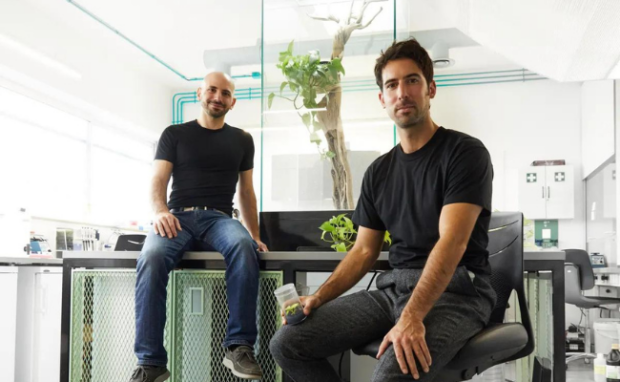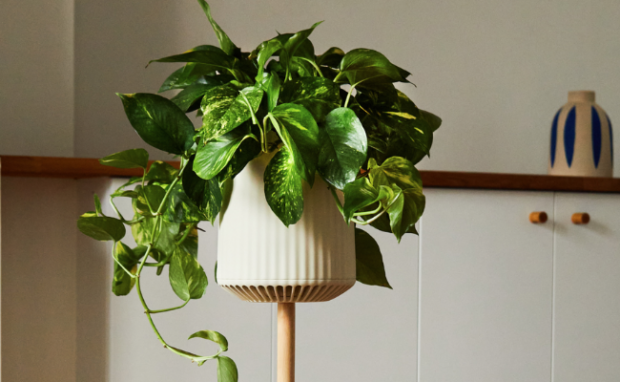The Future of Houseplants: Neoplants’ Air-Cleaning Abilities
A French startup called Neoplants launched a genetically engineered houseplant that cleans air 30 times better than regular ones. It’s called Neo P1, and it recently entered the market with a whopping $179 price tag. Neoplants’ long-term goal is to harness the full air-purifying potential of indoor flora to improve quality of life.
The initial price tag may seem unaffordable for most, but Neoplants and other companies will eventually reduce that price. They will improve upon the Neo P1 and apply it to other houseplants. Soon, genetically modified greenery will become commonplace, changing the air we breathe.
By reading this article, understanding the Neo P1 lets you glimpse your future with genetically improved plants. It will discuss how Neoplants created its first leafy project and its long-term objectives. Whether you have a green thumb or not, you should see how technology improves common houseplants!
How did Neoplants create Neo P1?

Photo Credit: forbes.com
Patrick Torbey, the chief technical officer, explained how his company created its first product. It genetically engineered a pothos or “devil’s ivy,” a popular houseplant in the United States.
The problem was it lacked proper research materials, and Neoplants needed them to create its genetically altered houseplant. Consequently, Torbey said the company had to map the pothos genome itself.
Then, they had to spot the right genomes to change to maximize pollutant filtration. “It’s like trying to build a plane while flying,” the CTO said. The project took four years to develop.
Fortunately, the engineers created the Neo P1. It can metabolize four major air pollutants like toluene and formaldehyde. The flora can also absorb specific types of volatile organic compounds. These include the carcinogen benzene, often found in wildfire smoke.
Moreover, the Neoplants team significantly improved the common devil’s ivy from its roots. The engineers inserted genes from bacteria that thrive in extreme conditions.
You may also like: OpenAI Is Developing ChatGPT Robots
As a result, the genes boosted the plant’s pollutant-metabolizing ability. The plant modification firm also complied with FDA standards by avoiding specific genomes.
He said his company wanted to purify the air without electricity. In other words, they want an eco-friendly alternative to air cleaning machines.
“We don’t give a selective advantage to the plant. We don’t make it grow faster; we don’t increase its resistance to pesticides,” Torbey explains. “We’re not touching any of that.”
Why did Neoplants create genetically engineered plants?

Photo Credit: genengnews.com
CTO Patrick Torbey said his company wanted to purify the air without electricity. In other words, they want an eco-friendly alternative to air cleaning machines.
Also, the team noticed the rising public interest in air quality. “One of the side effects of the pandemic is that people are much more aware of what’s in the air they breathe,” says Torbey.
They cited the alarming uptick of volatile organic compounds in peoples’ homes. VOCs are highly reactive chemicals typically found in cleaning supplies, building materials, and pesticides.
Unfortunately, they can cause headaches, eye irritation, liver damage, and cancer. Worse, most VOC particles are too small for most air purifiers.
Mechanical filters usually release large VOC particles to different locations instead of eliminating them. In contrast, plants have a significant advantage over air cleaners.
A NASA report from 1989 claims greenery can clear the air in a closed environment. However, a more recent study says flora only has a modest impact on these pollutants.
You may also like: Why Barley Grass Is A Superfood?
Thanks to Neoplants, genetically modified plants may become our future solution to cleaner air. Even better, the company plans to apply its findings to other plants.
“The cool thing about DNA is that it’s universal,” the CTO says, “It’s easy to transfer technology from one plant to another.” Also, Neoplants CEO Lionel Mora says his company aims to combat climate change.
Engineers could genetically alter plants to capture and store significantly more carbon than they usually would. “From what we see, carbon capture and storage is the most pressing issue,” Mora says. “And there is no way biology isn’t going to play a part in the solution.”
Conclusion
Neoplants launched a genetically modified houseplant named the Neo P1. It costs $179 at the time of writing, and the company hasn’t released similar products yet.
If spending almost $200 on a houseplant seems excessive, you can still improve your home’s air quality with regular flora. For example, check my guide on how to care for a Monstera plant.
Perhaps plants like the Neo P1 can help us beat climate change. See what’s next in the world of technology by following the latest tips and trends from Inquirer Tech.